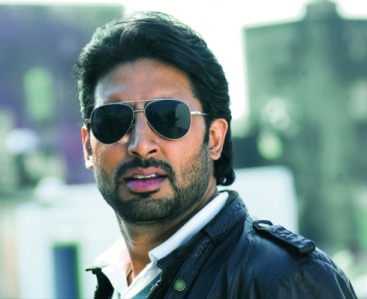
 |
 An eclectic landscape of new versus old, Delhi-6 is a mirror image of almost every unforsaken corner in India. She represents the growing trends of globalized transformations and passionate blends of cultural clashes. Director Rakeysh Omprakash Mehra undertakes the daunting task of scratching beneath the surface. He creates an exposé that Is meant to make us look inward before throwing blame externally. An eclectic landscape of new versus old, Delhi-6 is a mirror image of almost every unforsaken corner in India. She represents the growing trends of globalized transformations and passionate blends of cultural clashes. Director Rakeysh Omprakash Mehra undertakes the daunting task of scratching beneath the surface. He creates an exposé that Is meant to make us look inward before throwing blame externally.
Roshan (Abhishek Bachchan), an American-born NRI, embarks on a life-changing journey as he escorts his ill grandmother (Waheeda Rahman) back to her homeland in Delhi. Upon arriving to the foreign country, Roshan becomes immediately engulfed in the clashing lifestyles of the city's residents. His initial reactions are those of ignorance and wonderment, like a pioneer trekking through unchartered territory. Soon enough, the thrill of new adventure turns into a serious awakening of sorts. It is this awakening that exposes the darkened depths of human character. Roshan realizes that the people are heavily plagued by corrupt values and are always on a quest to find and torch the demons of the world, failing to realize the demon sits within them. Mehra personifies this demon through the metaphorical usage of the Kaala Bandhar (the Monkey Man). The centre-point of the film's narrative, the Kaala Bandhar represents the immoral values of hate, greed, envy, prejudice, etc. Unfortunately, writers Mehra and Prasoon Joshi would have been wise to create a more subtle parallel, as the non-existent Monkey Man quickly overshadows the script's focus and duration. The Ramayana symbolisms could have been done away with as well.
Delhi-6's story-script relationship serves as a Catch 22 for Mehra. On one hand you want the story to touch on a vast array of issues (domestic, national, political, religious, cultural, personal). Yet the more issues you discuss, the more episodic the screenplay becomes. This is D-6's major downfall in the mid-portions, where more refined editing could have been used to lace the issues with fluidity and fluency. The second major flaw in the writing lies in the character sketches – most notably the lead character, Roshan. Myself being an American-born NRI, I found it extremely difficult to relate to Roshan's character from the opening scenes. His emotional reactions to arriving in India for the very first time were farcical and highly unbelievable. Abhishek's fake accent didn't help the cause either. How I wish Mehra would have gone with a fresher, more authentic look. Another character flaw in Roshan is with his deep transformation from being an “American” to becoming an “Indian.” Besides a short soliloquy proclaiming that he suddenly feels a connection with the people, no basis or reasoning has been adequately provided that would honestly make us believe in the reality of his cultural transgression. This further detached me from him. I also got some chuckles from Mehra's perception of NRI attitude and psyche. Apparently NRI's don't realize the severity of slapping a police officer.
Abhishek Bachchan provides a progressive performance. While he is clearly out of his game in the first half, he blends into his character during the pre-interval portions just as his character blends more into the narrative. It's not one of Bachchan's more demanding roles by any stretch of the imagination. Despite a valiant effort, I would have liked to have seen a more real depiction. After all, it takes one to know one. The supporting cast boasts of some impressive talent. Sonam Kapoor delivers a solid translation of Bittu. Thanks to a very skimpy presence, she harmlessly floats into the backdrops of the immensely skilled supporting line. It is the smaller characters that hit you the hardest – Divya Dutta's feisty portrayal of the untouchable Jalebi, Atul Kulkarni's innocent conveyance of Gober, and Deepak Dobriyal's touching rendition of Mamdu – all of whom put forth spectacular performances in their small but significant roles. There are a few directors whose careers are defined by one over-shadowing performance. For Farhan Akhtar it is Dil Chahta Hai. For Ashutosh Gowarikar it is Lagaan. For Rakeysh Omprakash Mehra it will remain Rang De Basanti. However, despite its flaws, DELHI-6 remains an achievement for Mehra. By creating the Kaala Bandhar, Mehra has used film for its intended purpose – to shine light on the human character. It might not create the revolutionary awakening that RDB did, but it will serve to enlighten. Shoddy writing and poor character development aside, Delhi-6 is worth one viewing.
Aakash Gandhi is Managing Editor and Senior Writer for PlanetBollywood.com. He also freelances for the AVS TV Network at avstv.com.
|
|||||||||||||||||||||
| Comments | Contact Us | Advertise | Terms of Service | Privacy Policy |